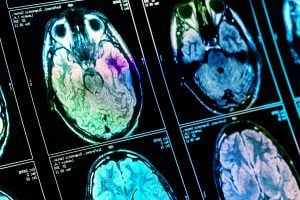
A new research collaboration between Johns Hopkins University and Danaher Corporation seeks new methods for diagnosing mild traumatic brain injury (TBI). Johns Hopkins researchers aim to establish correlations between a new biomarker panel and clinical findings for early, precise diagnosis, with the potential to transform TBI treatment and benefit millions of patients globally. This strategic collaboration is part of the Danaher Beacons program, which supports product-driven scientific research aimed at developing innovative technologies with the potential to improve patient care significantly.
Nearly 56 million patients worldwide have mild TBI. Unlike more severe TBI, mild TBI is not always correlated with abnormalities that are visible on computerized tomography (CT) head scans, leaving patients exposed to unnecessary radiation, unwarranted medical costs, and misdiagnosis. The goal of the collaboration is to create tests for earlier and more precise diagnosis of mild TBI. If successful, these advancements could extend beyond TBI to other brain injuries and neurodegenerative diseases, marking important progress in neurological care.
“This engagement leverages a combination of the innovative science conducted at Johns Hopkins and the commercial expertise of a world-class organization like Danaher that could produce a much-needed tool to help serve a currently underserved patient population,” says Andrew Kunkler-Peck, Ph.D., director of business development with Johns Hopkins Technology Ventures (JHTV), who worked on the agreement with Danaher for JHTV’s Corporate Partnerships team. “This is an example of how linking Johns Hopkins with industry expertise has the potential to accelerate the development of products and services that have an outsized impact on society.”
The collaboration is led by Jessica Gill, Ph.D., and Richard Rothman, M.D., Ph.D. Gill is a Bloomberg Distinguished Professor of Trauma Recovery Biomarkers, with appointments in the School of Nursing and the School of Medicine’s Department of Neurology. Her career in TBI research was inspired by her clinical training with the Veterans Administration, where she noticed varying recovery responses among veterans with brain injuries. She has since become a national leader in studying the biological mechanisms of TBIs. Gill investigates how biomarkers, such as proteins and exosomes, can identify patients at high risk for poor recovery and long-term effects like PTSD, depression, and post-concussive syndrome. Her research aims to use these biomarkers to monitor patients over time, detect risks, and develop interventions to mitigate these risks. “This collaboration with Danaher is critical for improving the way that we care for patients with brain injuries. The effects of a traumatic brain injury can be devastating for patients. By combining the new biomarkers that we have identified, we could make a substantial difference in how these common and critical injuries are diagnosed and treated,” says Gill.
Rothman is a Professor of Emergency Medicine, Vice Chair of Research, and Director of Research Fellowship in the Department of Emergency Medicine at Johns Hopkins Medicine. Rothman has dedicated his career to the development and clinical translation of novel diagnostics for surveillance diagnosis and treatment of patients. This includes the use of diagnostic tools in the emergency setting, such as those for TBI. “Clinicians need a better way to determine which patients suspected of TBI should undergo a CT scan and which are at higher risk of developing severe symptoms so that they can be referred for proper treatment. Through this collaboration, we hope to significantly improve blood-based diagnostics for mild TBI, which will significantly improve our ability to diagnose patients better earlier and more precisely, leading to improved treatment outcomes and faster recovery,” says Rothman.
Julie Sawyer-Montgomery, Vice President and Group Executive, at Danaher, said: “In recent years, we have seen tremendous leaps forward in our understanding of the brain’s complexity, including insights into specific biomarkers found in blood when brain cells are damaged. Technology also allows us to detect ever smaller concentrations of targeted biomarkers with proven in vitro diagnostic innovations. We are thrilled to partner with Johns Hopkins to combine these breakthroughs to confirm the clinical relevance of neurological biomarkers related to mild traumatic brain injury.”
The JHTV Corporate Partnerships team is committed to facilitating industry research collaborations with Johns Hopkins researchers to address unmet needs in society. Connect with the team here.